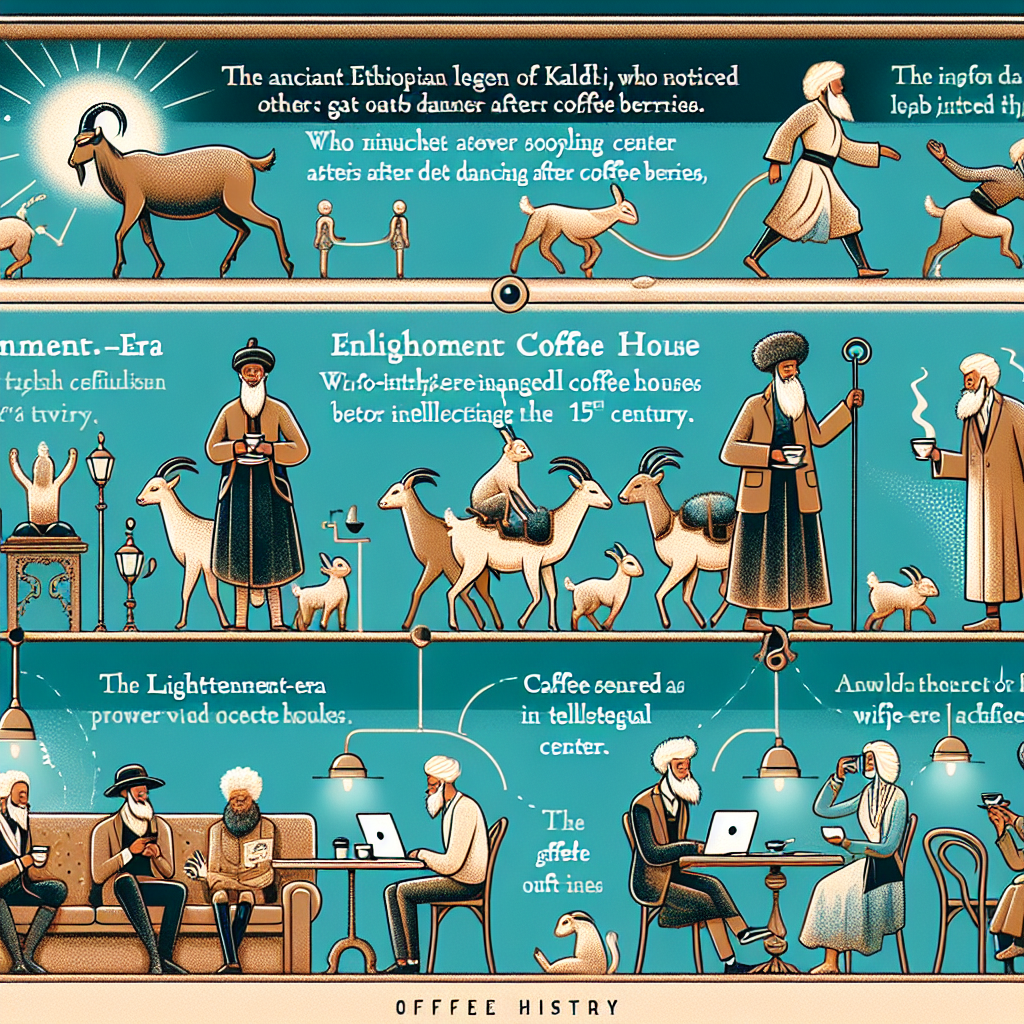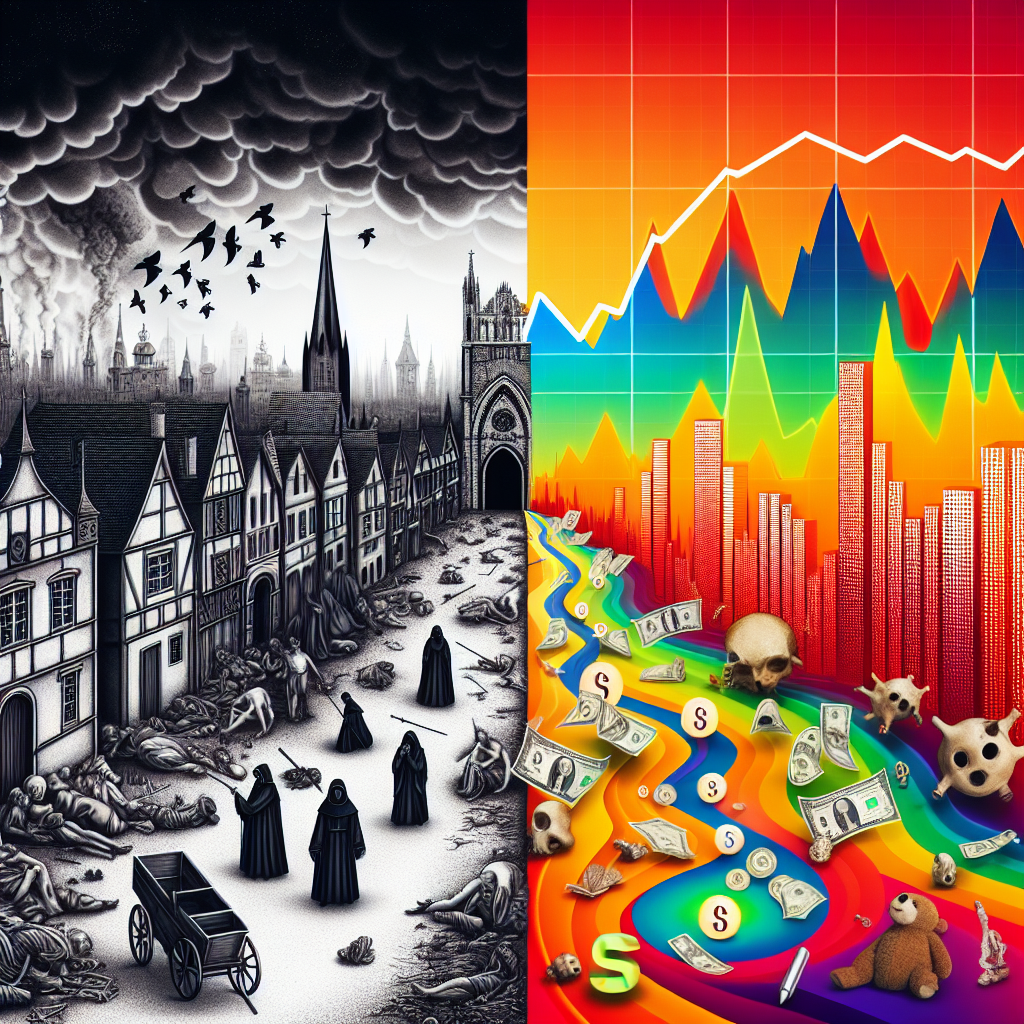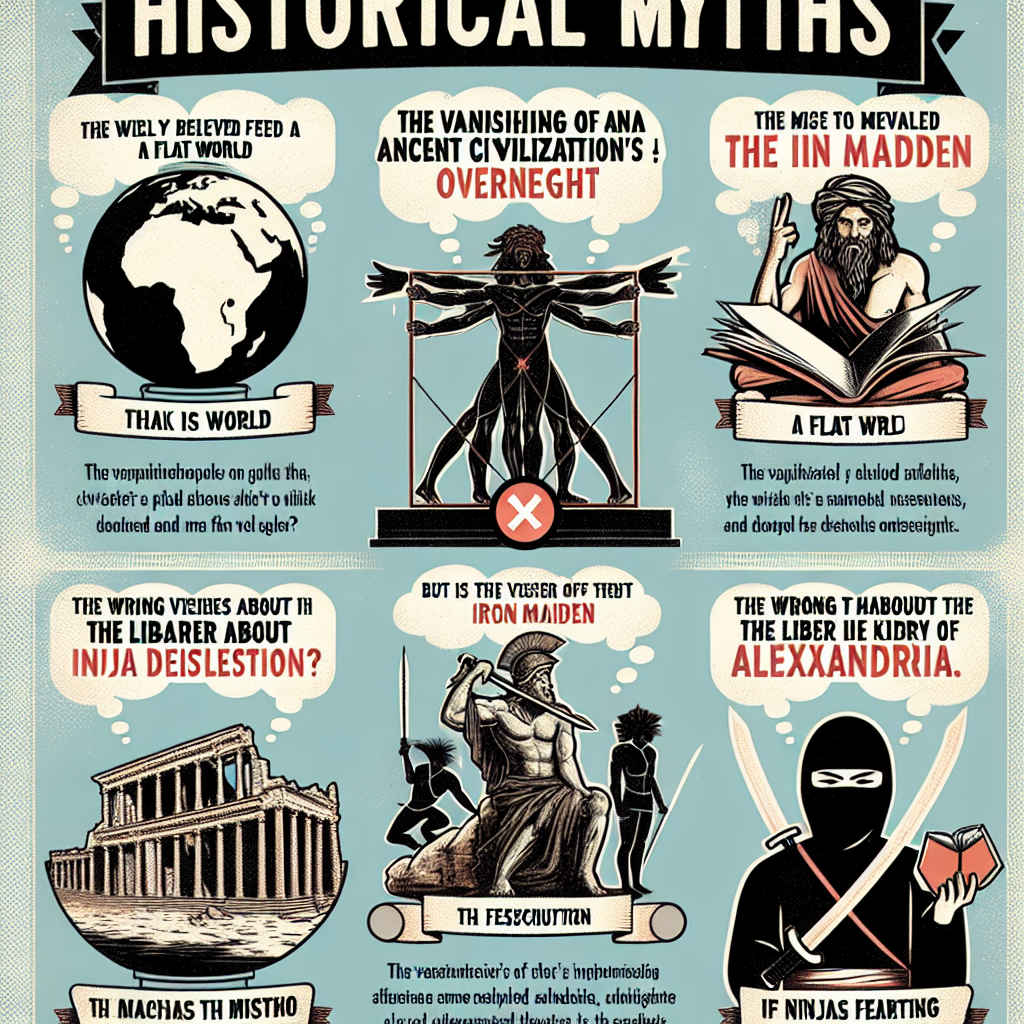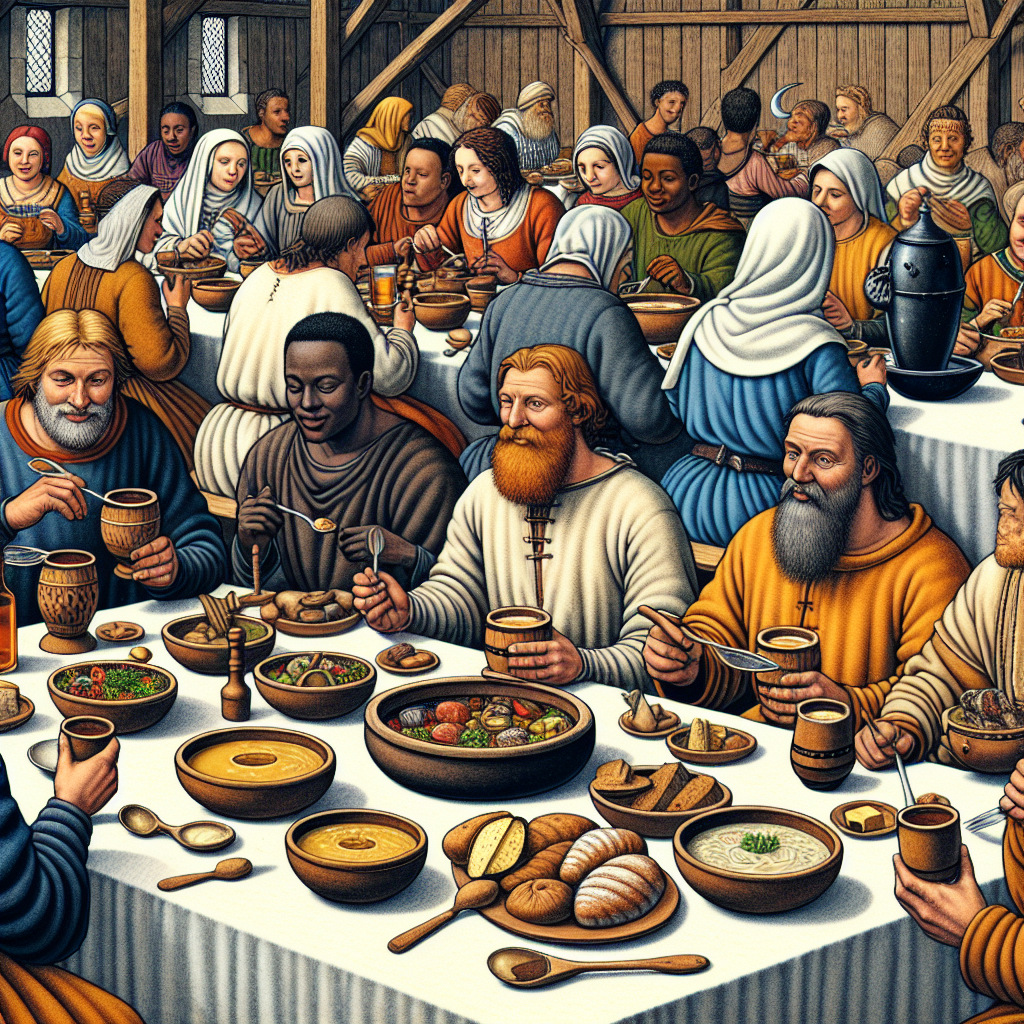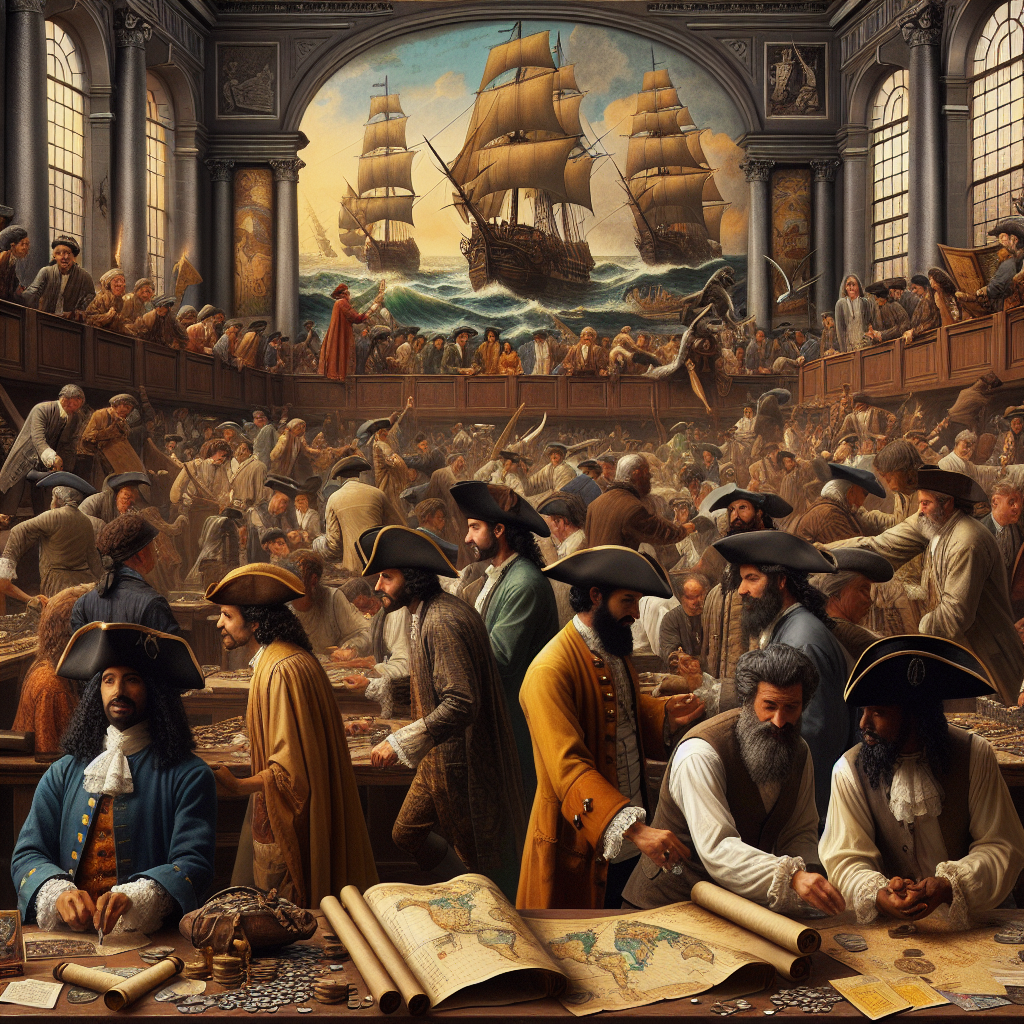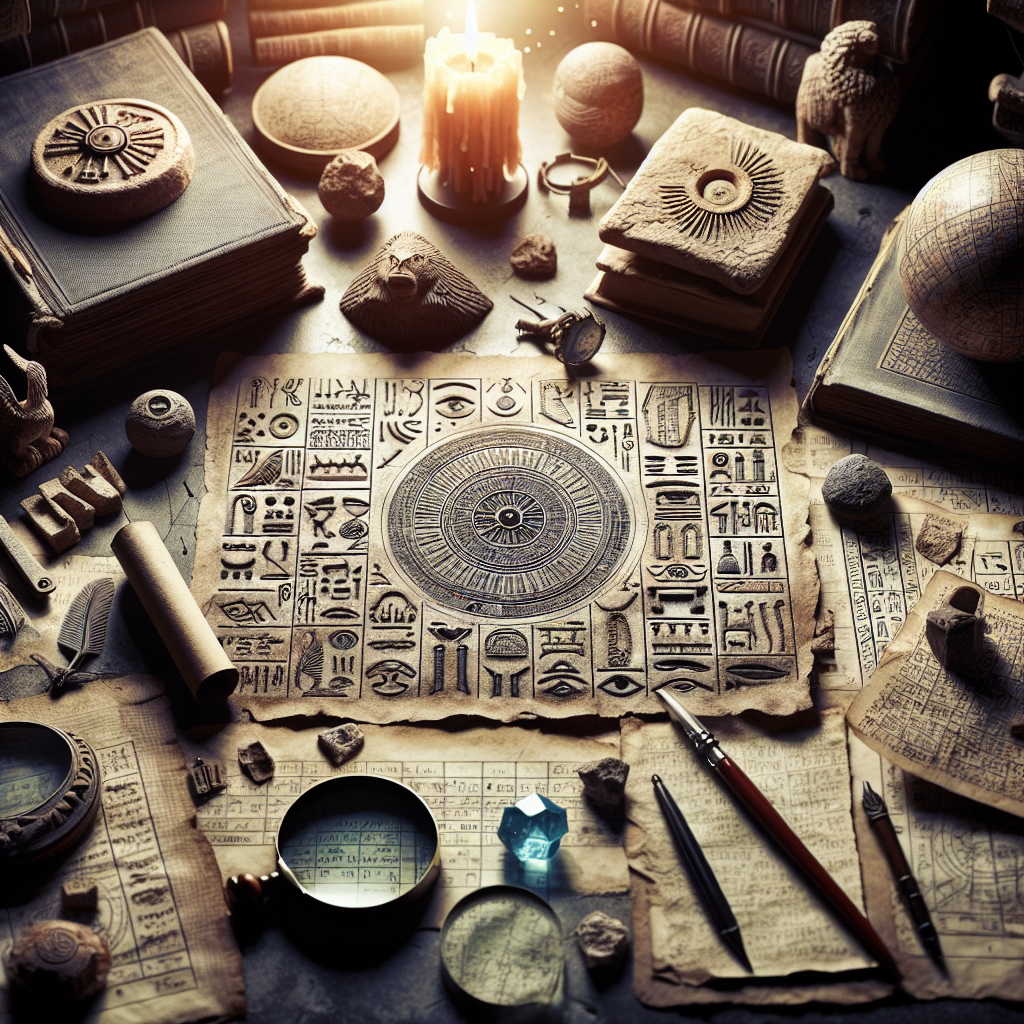Few beverages have stirred as much conversation, controversy, and creativity as coffee. From its mythic discovery on the Ethiopian highlands to fueling the intellectual revolutions of Europe, coffee has done far more than simply keep people awake—it has shaped societies, economies, and even ideologies. The story of coffee is, in many ways, the story of human progress seen through a steaming cup.
According to legend, coffee’s journey began in Ethiopia around the 9th century, when a goat herder named Kaldi noticed his animals dancing energetically after eating red berries from a certain bush. Curious, he tried them himself and experienced a sudden burst of alertness. Word of this strange energizing fruit spread quickly to nearby monasteries, where monks began using it to stay awake during long hours of prayer. From these modest beginnings, coffee’s influence began to ripple outward through trade routes to Yemen, where it was first cultivated and brewed as a beverage known as qahwa—a word meaning both “wine” and “stimulating drink.”
By the 15th and 16th centuries, coffee had conquered the Middle East and North Africa, becoming a central feature of Islamic culture. In cities like Mecca, Cairo, and Istanbul, qahveh khaneh—coffeehouses—became the meeting places of poets, scholars, merchants, and philosophers. These were the original “penny universities,” places where a cup of coffee could buy access to lively debates and the exchange of ideas. Interestingly, religious authorities often viewed these establishments with suspicion, fearing that their open discussions might lead to dissent. In some cities, coffee was even temporarily banned, not for its taste, but for its revolutionary potential.
When coffee reached Europe in the 17th century, it caused both fascination and alarm. The beverage was so foreign that it was initially denounced by some as the “bitter invention of Satan.” But once Pope Clement VIII tasted it, he declared that it was so delicious it would be a sin to let only infidels drink it. With papal approval, coffeehouses began sprouting across the continent. London alone boasted hundreds by the early 18th century, each one buzzing with conversation and enterprise. These establishments became hotbeds of innovation—Lloyd’s of London, for instance, began as a coffeehouse where shipowners and merchants met to discuss insurance and trade. Similarly, the seeds of the London Stock Exchange were sown in another such gathering spot.
In the Americas, coffee took on an entirely new economic and political dimension. As European powers expanded their empires, they saw coffee not just as a beverage but as a lucrative commodity. Plantations spread across the Caribbean, South America, and Africa, powered by the labor of enslaved people. Coffee became a global industry, shaping the fates of nations and entire populations. Brazil, for example, built much of its 19th-century economy on coffee exports—a legacy that continues today, with the country remaining the world’s largest producer.
But perhaps coffee’s greatest impact came not from trade, but from thought. In an age when most Europeans began their day with beer or wine, coffee introduced something new: sobriety and stimulation. The 18th-century Enlightenment, with its emphasis on reason and debate, found its perfect companion in a drink that sharpened the mind instead of dulling it. The French Revolution, too, found many of its early ideas brewing not just in political clubs but in the coffeehouses of Paris. In a sense, coffee helped replace the fog of alcohol with the clarity of caffeine, giving rise to a more rational and questioning public.
Today, coffee remains more than a beverage—it’s a global ritual and an industry that connects millions of people, from small farmers in Ethiopia to baristas in New York and beyond. Yet behind every espresso shot or cappuccino lies a legacy of cultural exchange, economic transformation, and intellectual awakening. It’s easy to forget, as we sip our morning cup, that coffee once changed the very rhythm of human life—turning night into day, solitude into conversation, and curiosity into revolution.
So the next time you reach for that familiar aroma, remember: coffee isn’t just part of your routine—it’s part of history itself.
